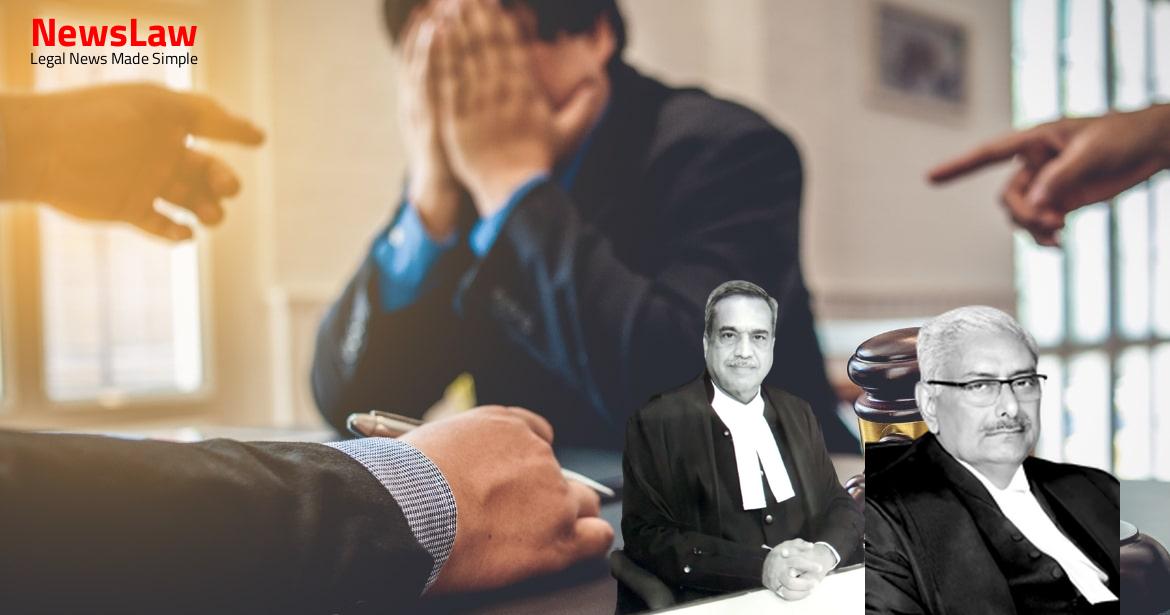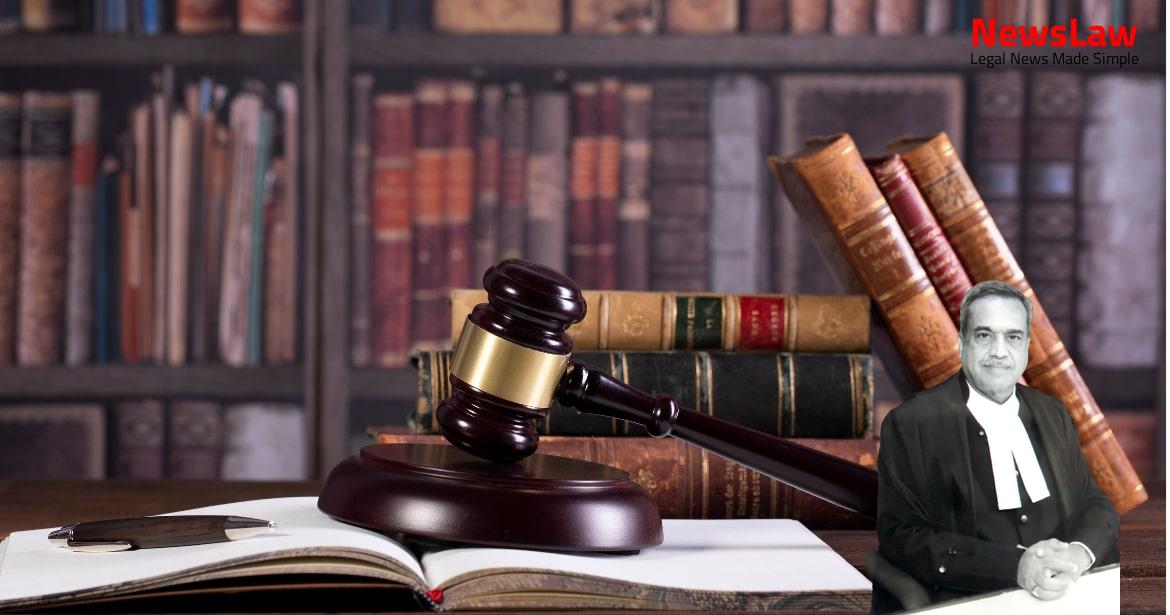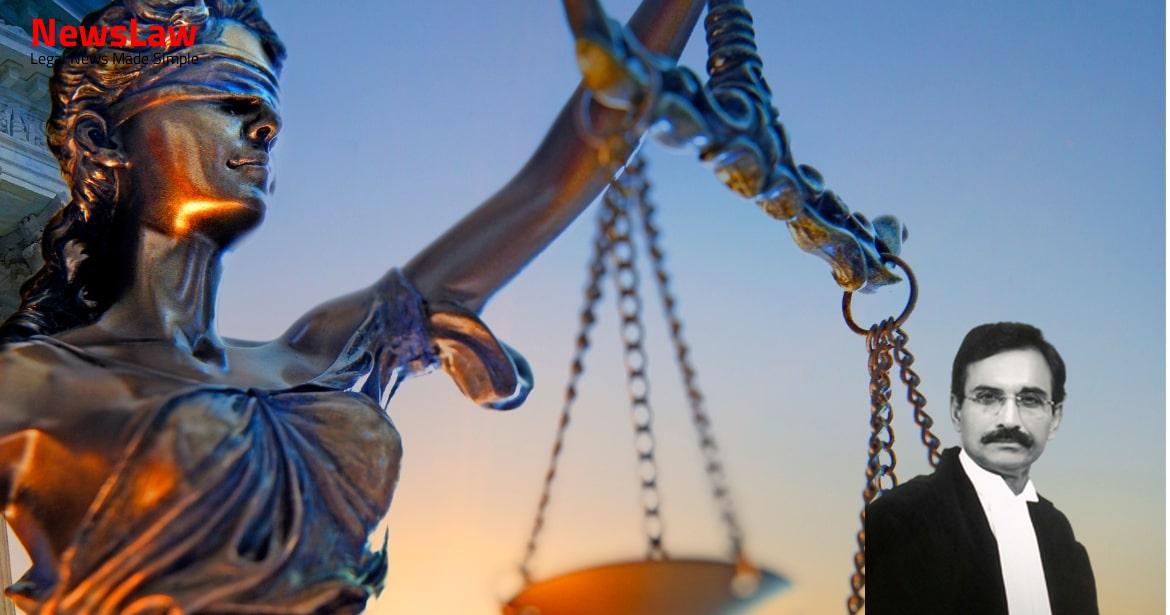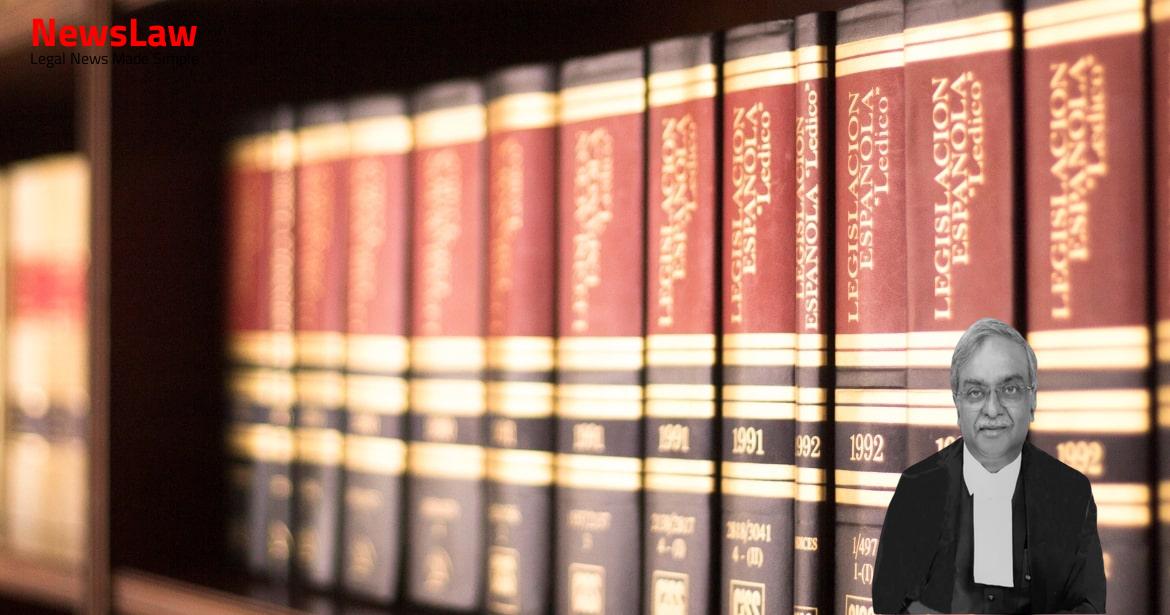A significant legal case involving multiple offenses was recently decided by the Supreme Court of India. The Court’s ruling pertains to the process of framing charges and discharging individuals accused of various crimes. The judgment clarifies the principles governing the discharge of accused individuals and the framing of charges in criminal proceedings.
Facts
- The appellant is facing trial for multiple offences under the IPC.
- The criminal proceedings were initiated based on an FIR lodged by the Police Inspector on 22.11.2013.
- The alleged offences were committed on 21.11.2013.
- The appellant is appealing the decision before the Court.
- Investigating Officer collected relevant material/evidence and recorded statements of witnesses including the prosecutrix
- Charge-sheet filed against the appellant for the mentioned offences
- Additional Sessions Judge ordered charge to be framed against the appellant for multiple IPC offences
- Appellant filed a Revision Application which was dismissed by the High Court
- High Court refused to discharge the appellant for the charged offences
Also Read: Address Update Requirement: Legal Implications for Corporate Entities
Arguments
- Shri Vikas Singh, learned Senior Advocate representing the appellant argues that the High Court erred in not exercising revisional jurisdiction and not discharging the accused.
- It is emphasized by Shri Tushar Mehta, learned Solicitor General, that during the charge framing stage, the court should only determine if there are grounds to presume the accused committed the offense.
- Shri Vikas Singh heavily relies on the cases of Bhagwan Singh and Mohan Lal to support the discharge of the accused.
- Shri Tushar Mehta relies on various court decisions to assert that at the charge framing stage, the evidence’s truth and veracity need not be meticulously judged.
- The appellant contends that the current evidence does not establish a prima facie case against the accused, but the High Court was correct in its decision not to discharge.
- The appellant seeks to quash the criminal proceedings based on the Mohan Lal case, which states that if the complainant and investigating officer are the same, the trial is tainted.
- Shri Tushar Mehta presents that after thorough investigation, the charge sheet was filed against the accused for specific IPC offenses.
- The appellant refers to a larger bench order in the Mukesh Singh case regarding the Mohan Lal decision, suggesting the pending status of this case.
- In response to the Varinder Kumar case reference, the appellant disputes the prospectivity of the Mohan Lal decision as asserted by the subsequent bench.
- Shri Vikas Singh questions the reliability of the prosecutrix based on WhatsApp messages, arguing against her credibility.
- The subsequent Bench could not have held that the decision in the case of Mohan Lal shall be applicable prospectively.
- The decision in the case of Mohan Lal should be applicable to the current case as the complainant and the Investigating Officer are the same, leading to the vitiating of the criminal proceedings.
- The original decision in the case of Mohan Lal did not specify its prospective applicability.
- The appellant’s counsel argues that only in the case of Mohan Lal could the Court have declared the decision as applicable prospectively.
Also Read: Army Discharge Case: Upholding Justice for Long Service Rendered
Analysis
- The court is required to discharge the accused if it ‘considers that there is not sufficient ground for proceeding against the accused’.
- Discharge of the accused by the Court of Session under Section 227 is distinct from cases instituted upon a police report under Section 239 and cases instituted otherwise than on a police report under Section 245.
- A decision of this Court in a previous case has been referred to a larger Bench due to doubts raised.
- At the stage of framing the charge under Section 227/228 of the CrPC, the focus should be on whether there is a ground for presuming that the offense has been committed, rather than on proving guilt beyond a reasonable doubt.
- The court must evaluate the evidence to determine if there is a prima facie case against the accused, without conducting a detailed trial.
- Different provisions in the sections regarding discharge of an accused at various stages are identified.
- The judgment clarifies that at the stage of discharge, the court cannot engage in a full-fledged examination akin to a trial but must assess the existence of sufficient grounds for proceeding against the accused.
- Considerations for discharge under Section 239 and framing charge under Section 228 are outlined with emphasis on evaluating the probative value of the evidence.
- The court’s role is to assess if there is a prima facie case for proceeding against the accused based on the materials on record.
- The court must not act as a mere ‘post office’ for the prosecution but should consider all aspects of the case before framing the charge.
- The stage at which the Magistrate considers framing of charge under Section 245(1) is a preliminary one and the test of ‘prima facie’ case must be applied.
- There should not be a roving enquiry into the pros and cons of the matter or weighing of evidence as if conducting a trial while framing the charge under Section 227 of the CrPC.
- The Judge must evaluate the material and documents on record to determine if the facts at their face value disclose the elements constituting the alleged offense for framing a charge under Section 227.
- The Judge cannot act as a mere mouthpiece of the prosecution but must consider the broad probabilities of the case and any basic infirmities appearing in the case while deciding on framing a charge.
- If grave suspicion against the accused exists and is not properly explained, the court is justified in framing a charge and proceeding with the trial.
- The Judge cannot make a roving enquiry into the pros and cons of the matter or weigh the evidence as if conducting a trial while deciding to frame a charge under Section 227 of the CrPC.
- The power to discharge is exercisable under Section 245(1) when the Magistrate determines that no case against the accused has been made out which, if unrebutted, would warrant his conviction.
- Sections 227 and 239 allow for discharge before the recording of evidence based on the police report, accompanying documents, and examination of the accused after providing an opportunity to the parties.
- The accused has more than a prima facie case against him
- There is ample material on record to support the case against the accused
- The Trial Court correctly framed the charges against the accused
- The High Court’s confirmation of the charges was also deemed appropriate
- No interference by the Supreme Court is warranted
Also Read: Supreme Court Judgement on Maharashtra Prevention of Dangerous Activities Act, 1981
Decision
- The application filed in a disposed matter to release passport for travel was dismissed.
- Allegations of sexual abuse are serious and trial needs to be concluded quickly.
- Trial court directed to conclude trial within six months.
- All concerned parties are instructed to cooperate for early disposal of trial.
- The present appeal to discharge appellant from charged offences was dismissed.
Case Title: TARUN JIT TEJPAL Vs. THE STATE OF GOA
Case Number: Crl.A. No.-001246-001246 / 2019



